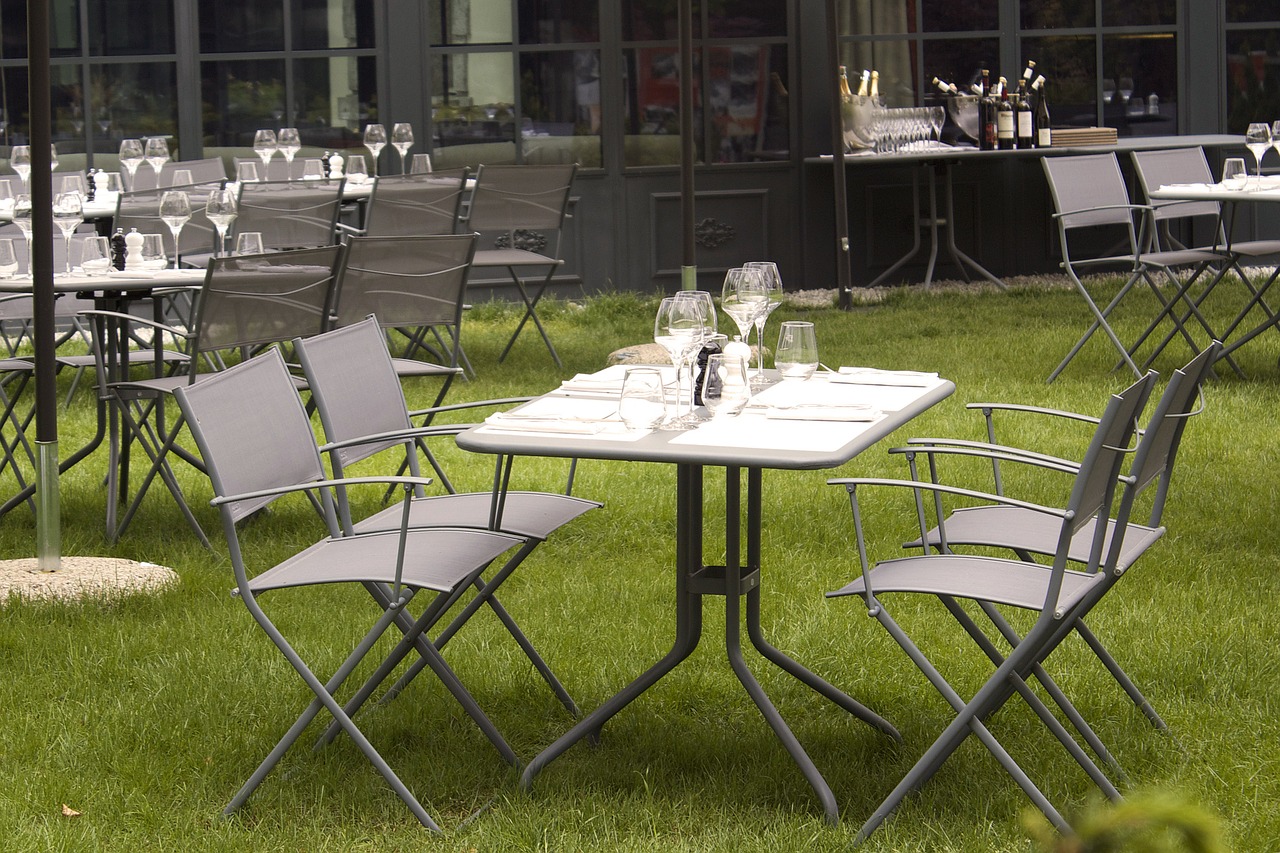Outdoor Seating – Getting Ready for June 5th

With the entire state in at least the Yellow Phase of reopening as of this Friday, bars, restaurants, breweries, distilleries, and others in the food and beverage services are gearing up to reopen for dine-in services in some capacity.
You must plan carefully before June 5th to maximize your outdoor seating, offer dine-in services safely and have guest experiences that are positive.
Yellow Phase
In the Yellow Phase, outdoor dining, subject to occupancy restrictions below, is permitted. Guests must be seated at tables. Bar seating or service is not permitted in any capacity.
Indoor areas must be closed to customers, except for through-traffic or restroom use.
Green Phase
In the Green Phase, indoor or outdoor seating and service is permitted, as is bar seating, subject to certain limitations. For bar service, customers must be 6 feet apart or have physical barriers between them.
You can have up to 4 customers seated together at a bar if they have a common relationship (i.e., same family).
Occupancy Limits
Under both the Green and Yellow Phases, there are occupancy restrictions in place for how many seats or persons you may have inside or outside. Right now, the guidance issued by the Governor’s Office provides 2 methods to calculate your maximum occupancy.
You must adhere to the smaller of these two calculations:
Method 1
50% of permitted fire occupancy or 12 people per 1,000 square feet if there is no fire code number available. For many outdoor seating areas, there will not be a fire code available, which currently means that you are limited to 12 people per 1,000 square feet.
This requirement is VERY limiting, so plan accordingly.
Method 2
Arrange the restaurant or food service area so that customers seated at tables are not within 6 feet of one another in any direction. Calculate the number of customers that can be accommodated using this layout.
There is a push to have this occupancy restriction relaxed to allow for you to use either of the above calculations. But right now, you are to use whichever method provides for fewer people.
The Governor’s guide to reopening for businesses in the restaurant industry includes additional detail and guidance for dine-in service.
Word is that the Department of Agriculture and the State Police – Bureau of Liquor Enforcement will be monitoring and inspecting to ensure compliance. How they will do that is anyone’s guess, but you should presume they will inspect you and plan accordingly.
Liquor License Expansions: PLCB’s Streamlined Application
Earlier today, the PLCB announced a streamlined application process to expand your licensed premises, including additional outdoor seating areas. To complete the application, you should log onto your PLCB+ account and select the option to add an “Emergency Temporary Extension of Premises.”
Please also remember to print the confirmation page once you submit the application. That confirmation acts as your temporary approval.
The PLCB has said they will permit the use of parking lots, yards, and other non-traditional areas to be licensed. Please beware that the areas you wish to add have to be “immediate, abutting and adjacent” to your current licensed areas. This means you could not license a parking area or yard that is across the street or down the block from your facility.
This is a temporary approval that will expire at some point later in the year and the PLCB has waived any fees associated with this emergency application.
If you are going to be using municipal-owned space (public sidewalks, parks, streets) as your serving areas, you will also need to upload with your application a letter from the municipality indicating its approval. That letter does not have to be specifically addressed to you but can be in the form of an ordinance or generic approval to all restaurants in the municipality.
Other Approvals You May Need
Municipal Approval
Please also beware that just because you get approval from the PLCB, that does NOT mean that you are automatically able to use that space. For example, if you are considering using your parking lot for outdoor seating, you may need to speak with your local zoning officer or another municipal official to see how that impacts your parking requirements.
Typically, the required number of spaces is calculated based on the number of seats plus a certain number of employee spaces. Consider how many spaces you are taking away and how that will impact your parking needs.
Lancaster City’s Temporary Sidewalk Café Permit Authorization
Some municipalities are being proactive about the need for expanded outdoor seating. Lancaster City just announced that on Friday morning, they will approve an ordinance permitting all restaurants to temporarily use sidewalks, certain parking areas, and in some cases streets for outdoor dining. Here’s a link to their Temporary Sidewalk Café Permit application.
Please understand, there are still some limitations, and the City may still require some type of barrier. They will also make sure that there is still sufficient room for pedestrians to pass.
The City is also requiring applicants to sign an indemnification agreement holding the City harmless from the activities occurring in these areas.
Landlord Approval
You may also need to seek approval from your landlord to expand your seating areas. You should review your lease and consider whether you need any additional approvals from your landlord.
Updating Your Insurance
Please also be sure to notify your insurance carrier of any additional outdoor seating areas. Especially for those with Liquor Liability Coverage, your policy typically requires you to notify your carrier of the areas where you provide alcohol service.
It is good practice for everyone to notify their carriers. At worst, they will tell you they don’t care.
If you need help navigating any of these issues, contact your attorney, and they can guide you through the process.
